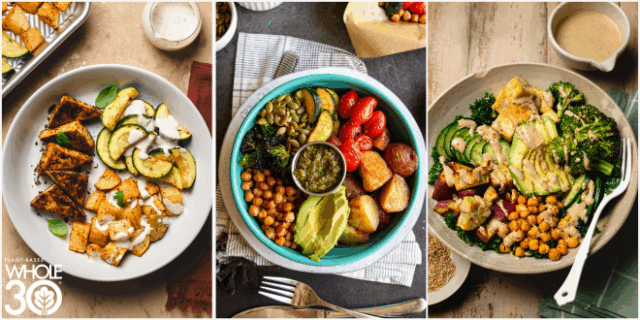As budget-conscious individuals, it’s important to find ways to save money in every aspect of our lives. One area that often seems like a prime target for cutbacks is eating plant-based on a budget. With a little creativity and some careful planning, reducing the cost of our weekly shopping trips can be achieved—especially when opting for plant-based foods.
Not only do these plant options often come with a lower price tag, but they also offer great variety, health benefits, and delicious flavors to explore. Let’s see how much you can trim from your grocery expenses with these tips!
Plant-based budgeting tips
Eating on a budget can be challenging regardless of your dietary preferences. But it is definitely possible to eat a varied, healthy diet with some smart planning and shopping. Here are some tips to help you eat plant-based on a budget:
- Plan your meals: Sketch out your meals for the week ahead of time and make a grocery list based on those recipes. This will help you avoid impulse buys and ensure that you have everything you need for the week.
- Buy in bulk: Buying beans, lentils, nuts, and tofu in bulk is often cheaper than buying them pre-packaged. Look for these items at bulk food stores or online from a retailer like Thrive Market.
- Shop in-season produce: Eating produce that is in season is often cheaper and fresher. Check your local farmers market or supermarket for seasonal produce. Fun Fact: Did you know that many farmer’s markets take EBT?
- Cook at home: Cooking your meals from scratch is often cheaper than buying pre-packaged foods. Even during your Plant-Based Whole30, opting for simple plant-based recipes online and experimenting with different ingredients can be more cost effective than going out for a Whole30 approved meal.
- Use more affordable protein sources: Instead of relying on more expensive plant-based protein sources that are store bought, eat plant-based on a budget by using options like beans, lentils, chickpeas, and tofu.
- Freeze leftovers: Put any leftovers you have in the freezer to avoid food waste and save money on future meals. If you’re a smaller household, you can also freeze produce that you don’t use up.
- Use coupons and sales: Look for coupons and sales on plant-based items in your local supermarket. Coupons can be found in the store circular or on their app. Delivery apps also have their own sales from time to time.
- Avoid buying convenience foods: Remember that you pay for convenience. So convenience foods like pre-made veggie burgers and snacks can be expensive and add up quickly. Instead, make your own snacks and meals from scratch.
- Grow your own food: Start a garden in your backyard or on your balcony. If you have patience and an interest in gardening, seeds are only a couple of dollars for a high yield. Already established seedlings are around $5-$6 and can also provide a nice harvest.
Is eating plant-based actually cheaper?
The answer to this question is a bit harder to nail down than you’d think. The cost of plant-based foods and animal-based foods can vary depending on various factors. That includes the type of food, production methods, season, and location.
In general, some plant-based foods—like fresh fruits and vegetables, lentils and legumes—can be cheaper than animal-based foods such as meat and seafood. Fresh meat is one of the most expensive options in the grocery store. However, choosing premium plant-based foods, like vegan meat substitutes or plant-based protein powders, can be more expensive than whole animal-based foods.
So it really comes down to your goals and choices. You can spend up on some plant-based options. Or you can find plant-protein sources (like beans and lentils) and other foods that are great for living plant-based on a budget. It’s up to you to choose what works best for your body and your wallet.
Eat healthy, delicious food without busting your budget
Eating plant-based on a budget is doable. You may just have to find new ways to cook in the kitchen and creative ways to shop. Check out our plant-based recipes here for ideas to spark your creativity and help you plan your meals.
When cooking recipes, feel free to make substitutions based on what you already have instead of shopping for all new ingredients. For example, instead of broccoli, could you use cauliflower. For spinach, swap out another leafy green. Recipes are always just suggestions and you can make them your own with what you have.
Getting good at thinking creatively about ingredient swaps and learning to save when shopping will pay off. In fact, you have two things working in your favor when you eat plant-based on a budget. And neither one has anything to do with money.
First, limits often breed creativity. And two, delicious food isn’t dependent on a dollar value. Try the budget-friendly approach during your next Plant-Based Whole30—or at any time during your Food Freedom. The results might provide a few pleasant surprises.















